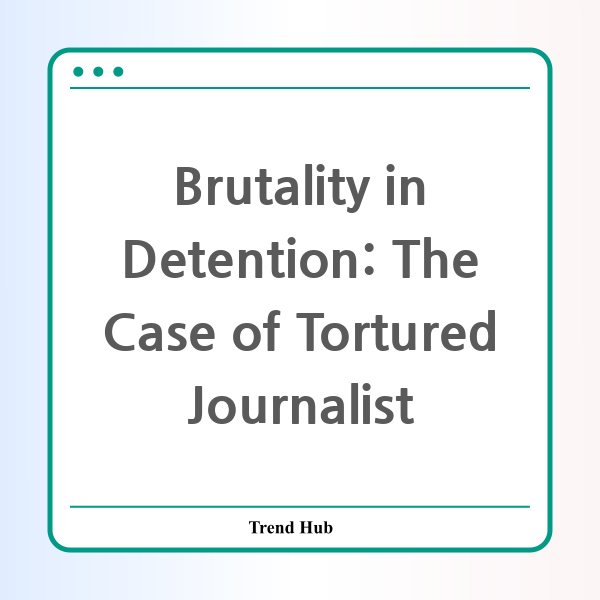* This website participates in the Amazon Affiliate Program and earns from qualifying purchases.

Is it the price of truth in a war zone? The tragic story of a Ukrainian journalist has once again illuminated the alarming realities of war and the brutal treatment of those who dare to uncover it. The case of a young female journalist whose body was returned to Ukraine after being held in Russian detention raises serious concerns about human rights violations, torture, and the safety of journalists in conflict zones.
In an alarming sequence of events, the body of a Ukrainian woman was returned to her homeland after she reportedly died in Russian custody. This journalist had gone missing during a reporting trip in August 2023, only to be later confirmed as detained by Russian authorities in a conflict-ridden area of Ukraine. The grim details surrounding her death have sparked outrage and concern worldwide, highlighting the pressing issues of accountability and the treatment of detainees in wartime.
According to Ukrainian officials, forensic examinations revealed shocking signs of torture on the journalist's remains, including abrasions, hemorrhages, and broken bones. In addition, there were indications that she suffered electric shocks while in custody—methods notoriously used by authorities in such circumstances. The missing organs further exacerbate the already troubling situation, raising suspicions about the conditions under which she was held and the reasons behind these gruesome acts.
The journalist’s disappearance initially raised alarm bells for her family, who were desperate for answers. Their uncertainty stretched for months until the announcement finally came that she had indeed been detained by Russian officials without charge or trial. The cruel reality of her imprisonment was revealed to be an ordeal characterized by physical and psychological abuse, compounded by inadequate provisions for food and health care.
The broader implications are profound. This incident sheds light on the dangers faced by journalists who venture into conflict zones to report on the truth. The journalist’s colleagues emphasize that her commitment to her work was unwavering, often placing her in perilous situations to bring important narratives to light. Her dedication serves as a poignant reminder of the risks reporters take in the name of journalism and free speech.
Moreover, cases like this underscore the urgent need for international advocacy and mechanisms to protect journalists. The systemic nature of the alleged abuses appears to be part of a larger pattern of violence against those who resist oppression or challenge narratives imposed by powerful entities. The ongoing war only intensifies the threat to media professionals, making their roles even more critical in documenting firsthand accounts of the humanitarian impact of conflict.
This tragic incident also points to the necessity for a unified global response to combat the impunity that often shrouds such abuses. Justice for victims, alongside efforts to hold accountable those responsible for torture and murder, is essential in preventing further atrocities. Engaging international bodies and human rights organizations for oversight can prove pivotal in creating a safer environment for journalists operating in hostile conditions.
As the world watches, the need for vigilance and awareness around these issues becomes ever more pressing. The fight for truth and justice remains an uphill battle, but it is one that cannot be won without collective action and dedication to human rights. Those who lose their lives in the pursuit of truth must be remembered and honored, and their stories must serve as catalysts for change.
In conclusion, as we reflect on the fate of this journalist, let us stand in solidarity with all those who strive to speak the truth in a world often clouded by fear and repression. It is our responsibility to demand justice and to ensure that the sacrifices made by courageous individuals are not forgotten, but rather fuel a relentless pursuit for accountability and freedom of expression.
* This website participates in the Amazon Affiliate Program and earns from qualifying purchases.